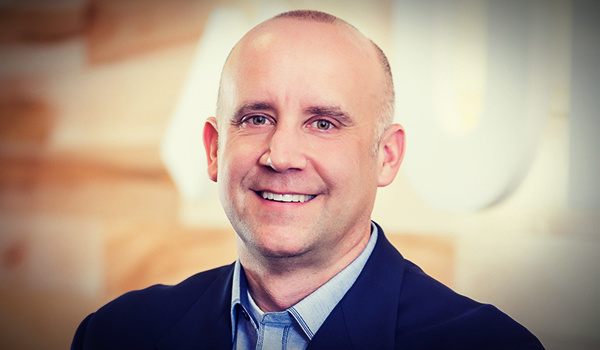Over the past two years, change has accelerated within the financial and technology industries, and Orion Advisor Servics has pivoted to keep up.
That pivot has Orion, a wealthtech behemoth, moving from helping financial advisors solving investment problems to addressing issues with the end-investor themselves, said Eric Clarke, CEO of Orion Advisor Services, on “The Weight Machine,” a podcast hosted by Orion Chief Investment Officer Rusty Vanneman.
As Orion’s CEO, Clarke has focused on creating a suite of technology that can fully transform every client-advisor journey for the better.
“So much has happened on a professional basis,” said Clarke. “The industry has continued to grow, and the independent fiduciary advice space is growing faster than any other area in financial services.”
Change is being catalyzed by the influx of private equity into the space. As a result, Clarke says there’s been a “giant leap forward” in capabilities and integrations.
There has also been a steady acceleration in merger and acquisition activity as a result of the increased investment, said Clarke.
“I think there will be continued investment made in fintech, specifically around that independent fiduciary advisor space,” said Clarke. “Based on that, that growth will be a rising tide that raises all boats, so to speak. It attracts a lot of dollars, and those dollars are coming in and solving problems.”
The wealth management industry’s value proposition also continues to change, said Clarke. In the past two decades, it has moved from an investment-centric value proposition to one focused on financial planning. Now, it is shifting again towards one based on creating better outcomes via investor behavior.
A Changing Company
Clarke believes the investment problem—finding the right allocation of assets to suit an investor’s long-term needs—has been solved. The industry is now moving towards the investor problem: doing things in ways that drive better behaviors, better outcomes and that help advisor understand their investors at a deeper level than historically has been possible.
“Over the past couple of years, we’ve had the opportunity to deploy some capital and merge our business and acquire some businesses, specifically as it relates to creating an opportunity for us to do a better job at solving the investment problem,” said Clarke.
One of the biggest moves was a merger with Brinker Capital, one of the world’s largest turnkey asset management platforms.
“As part of that merger, we had the opportunity to bring on board Dr. Daniel Crosby, who I think is the industry’s best thought leader in all things behaviorally related,” he said. “We’ve learned so much from Dr. Crosby, like better ways to utilize our technology, better ways to curate the client experience and better ways of understanding the investor through tools and surveys. We’re now asking questions that we normally wouldn’t have asked historically. Because of that merger, we’re able to bring a whole new dimension to what we’re offering advisors at Orion.”
Helping the Advisor
The focus on behavioral finance is one element of Orion’s pivot towards solving the investor problem, said Clarke. Like advisors, Orion is committed to helping investors down a path that leads towards success, but end-investors are simultaneously tempted to make decisions that make success more difficult to achieve.
“The basis of all great relationships, at least I believe, are founded on trust, said Clarke. “Being able to help the advisor understand the investor in at a more meaningful level is something that we think will set the relationship off to a good start and help the investor better respond to the coaching that they are receiving from all these great advisors that we work with.”
A good example of Orion’s efforts on the technology side is its recently announced 3-D Risk Profiling, which not only looks at risk tolerance and risk capacity, but also at an investor’s risk composure, or the behavioral characteristics and anxiety level of the end investor.
Moving forward, Clarke said that Orion is looking at tools to help investors feel more understood to help the advisor build more meaningful trust in their relationships.
“I am a huge believer that technology can be leveraged in ways that impact us in positive ways,” said Clarke. “
Orion on Digital Assets
Clarke also warns that having some capability to work with digital assets will no longer be optional for wealth managers.
“It could be the very best alternative asset class exposure that is available to essentially everyone,” said Clarke. “You have alts like venture capital and private equity, but typically those are difficult to access for the common investor.”
But there’s a lot of education that needs to take place on what digital assets are, and what advisors and their clients should invest in, said Clarke.
As part of the education piece, Orion is partnering with Ric Edleman and his Digital Assets Council for Financial Professionals to help provide knowledge to financial advisors.
“It’s important that advisors know and understand them so they can knowledgably respond to client inquiries about digital assets, providing them with advice about digital assets, and ultimately decide whether that’s something that they want to help clients to participate in,” said Clarke.
Orion in 2022
“What we’re focused on here in 2022 is all about connecting that experience through technology integrations, through seamless user experience, helping our advisors connect with their client in a more meaningful, seamless way and using technology to efficiently make that happen,” said Clarke.
That experience should extend across the entire advisor-client journey, from prospect, to plan, to invest, to achieving goals.
Clarke points to acquisitions that Orion has closed with Hidden Levers and compliance tool BasisCode, “All of those things are centered on being able to empower that advisor-client journey.”
“I would say that we’re not done yet, there are still opportunities that we’re pursuing and excited about,” said Clarke.







